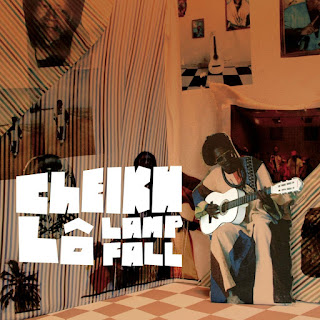26-11-2021 WORLD:MUSiC:MiX # 33 selected GLOBAL MUSiC tracks 2012-2021 # WmW: Aziza Brahim, Gulili Mankoo, Lajkó Félix, Sally Nyolo, Angélique Kidjo, Ibeyi, Roberto Fonseca, Lula Pena, David Eugene Edwards, Alexander Hacke, Meybahar, Meridian Brothers, Rodrigo Amarante
M U S I C / WmW 2h 24m
if you want excitement PRESS SHUFFLE!
if you want excitement PRESS SHUFFLE!
LISTEN THE PLAYLIST ON DEEZER.COM
2012-2021
Aziza is a Saharawi from Western Sahara, born in a refugee camp in Algeria. At the age of 11 Aziza received a schoolarship to study in Cube where she spent seven years, before abandoning her studies in order to dedicate herself to music.
Aziza Brahim, Gulili Mankoo
Wilaya Blues (Aziza Brahim) 5:38
Invasores (Ljadra Mint Mabroum - Aziza Brahim) 4:56
from Mabruk 2012
...Now she's working with her new group, Gulili Mankoo (a mix of Western Sahara music, rythms from Senegal and Blues music) in her new forthcoming record.
Often referred to as the Devil’s Violinist, the Paganini of Voivodina, or a child prodigy, once he is on stage with an instrument – be it the violin or the zither – Lajkó is capable of doing anything, of guarding his audience to a world that opens up only to those born with a special talent. Félix Lajkó handles music rather impulsively. There is no need to define the style or genre of his music, since it is exactly about the opposite: transgressing styles, accepting the inexplicable.
Csárdás / Csárdás
Mező / Field 3:02
Forgalom / Traffic 6:36
from Mező / Field 2013
”There are natural talents of music: in their hands everything turns into music - the choice of instrument does not make any difference.”
”Félix Lajkó (in Hungarian name-order Lajkó Félix) is not only an elusive master of traditional fiddle improvisation, but he is a brilliant player of the Hungarian fretted zither as well. ” fROOTS, November 1, 2013
The WMCE (World Music Charts Europe) has published its top 150 album of 2013 list. Out of 913 nominated records the new zither album of Félix Lajkó – was the leader both in August and September – called ’Field’ has ended up at the prominent 5th place!
Félix Lajkó - zither, Antal Brasnyó - viola, Michael Kurina - hammered dulcimer, Ferenc Kurina - double bass
Sally Nyolo is a Cameroonian artist who lives in Paris. Her music is inspired by the traditions of her home country. She plays bikutsi music among other genres and sometimes sings in endangered languages. She used to be a member of the group Zap Mama. She won the Radio France International World Music award in 1997, and since then her popularity has grown. She is one of the most famous singers from Cameroon.
Bidjegui 3:20
Tiger Run 4:20
Medjok 5_31
from Tiger Run 2014
Sally Nyolo's second Riverboat Records album is inspired by the moment before a tiger attacks - hushed in the long grass, senses alert, eyes wide, ears pricked, quiet purr, humming low. The title track 'Tiger Run' simmers with a musical mood akin to this idea: listen out for gently warping guitars, feather-light percussion and Sally's demure husky vocal. The tiger cat acts as a totem throughout Tiger Run, flexing its claws as the main source of inspiration. In conversation Sally Nyolo credits the animal for guiding her to compose music that strives toward a sense of power infused with lightness and agility...
Sally Nyolo's Tiger Run is poised to pounce and sink its slinking rhythms deep into your skin. Listen as the tiger's daughter dances close, marking her musical territory, and singing out at her creative zenith.














